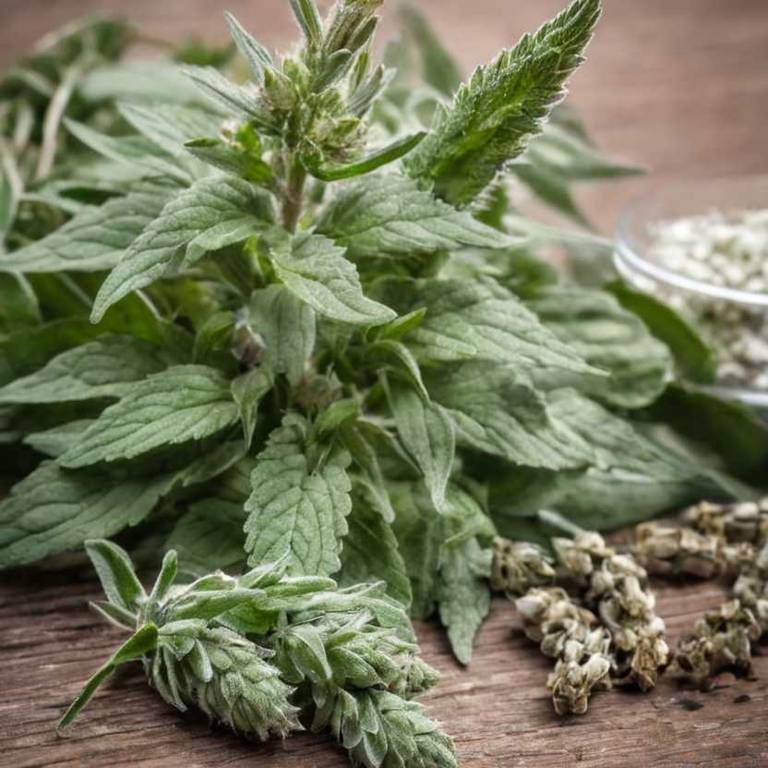Wood Betony (Stachys officinalis)
Wood Betony (Stachys officinalis) is a member of the Lamiaceae family, native to Europe, West Asia, and North Africa. Traditionally, its leaves, stems, and roots have been used for decoctions, infusions, and poultices.
This herb is particularly valued for its anti-inflammatory, diuretic, and carminative actions, and has a long history of use in european herbal medicine, mediterranean herbal traditions, and japanese kampo medicine.

Quick Facts / Key Information
| Common Name | Wood Betony |
|---|---|
| Scientific Name | Stachys officinalis |
| Plant Family | Lamiaceae |
| Genus | Stachys |
| Species | officinalis |
| Native Range | Europe, West Asia, North Africa |
| Plant Parts Used | Leaves, Stems, Roots |
| Primary Medicinal Actions | Anti-Inflammatory, Diuretic, Carminative |
| Primary Traditional Systems | European Herbal Medicine, Mediterranean Herbal Traditions, Japanese Kampo Medicine |
| Historical Preparation Methods | Decoction, Infusion, Poultice |
Botanical Identity
- Scientific Name
- Stachys officinalis
- Common Name
- Wood Betony
- Synonyms / Alternative Names
- Wood Betony, Common Betony, Woolly Betony
- Plant Family
- Lamiaceae
- Genus
- Stachys
Botanical Description
- Growth Habit
- Perennial herbaceous plant.
- Height
- It typically grows to a height of 30 to 100 centimeters.
- Leaves
- Ovate leaves with smooth margins, upper surface glabrous and dark green, lower surface pale green with distinct stomatal bands.
- Flowers
- Inflorescences are whorled cymes with tubular campanulate flowers having five lobed lips, two of which are elongated, and purple to violet coloration, arranged in a zigzag pattern along the stem.
- Stems
- Erect, unbranched, woody, hairy, with opposite, ovate leaves and purple bracts.
Traditional Uses / Historical Use
Traditional Systems
- European Herbal Medicine
- Mediterranean Herbal Traditions
Historical Preparation Methods
- Decoction
- Infusion
- Poultice
- Powder
Medicinal Actions
- Anti-inflammatory
- Historically regarded as a calming anti-inflammatory, in inflammation-focused discussions.
- Diuretic
- Commonly referenced as a moderate diuretic, in fluid-regulation contexts.
- Carminative
- In herbal texts, considered a warming carminative, within digestive system contexts.
- Tonic
- In herbal literature, noted as a cooling tonic, for long-term use contexts.
Active Compounds
- Flavonoid
- Plant-based polyphenolic compounds frequently distributed throughout aerial plant parts.
- Phenolic Acid
- A class of aromatic plant compounds commonly found in leaves, seeds, and stems.
- Tannin
- A group of compounds frequently present in plant tissues exposed to herbivory.
- Coumarin
- Naturally occurring lactone compounds distributed across various plant tissues.
Modern Research Overview
Contemporary research on this plant includes areas such as chemical analysis, laboratory-based studies, and observational research. Detailed summaries of published findings are not included at this stage and will be added during future content updates.
Safety & Contraindications
- General Precautions
- Caution is advised in certain contexts based on traditional use and available information.
- Contraindications
- There is insufficient evidence to determine specific contraindications related to this herb.
- Allergies
- Reports of allergic reactions to this herb are not well documented in available sources.
- Drug Interactions
- Interactions between this herb and prescription medications are not clearly established.
- Toxicity
- Toxic effects associated with this herb have not been well documented.
- Pregnancy & Breastfeeding
- Available information regarding use during pregnancy or breastfeeding is limited.
Preparation & Usage Methods
- Infusion
- A preparation method involving steeping plant material in heated water for a short period.
- Decoction
- This method uses sustained heat to extract compounds from firm plant structures.
- Poultice
- Plant parts are crushed or moistened and placed directly on the body.
- Tincture
- Plant material is macerated in alcohol to create a concentrated liquid extract.
- Powder
- This method converts dried plant material into a uniform powder.
Growing, Harvesting & Storage
Growing / Cultivation
- Soil
- Prefers loamy soil with well-drained conditions. Typically grows best in organically rich soils.
- Sunlight
- Thrives in full sun. Tolerates full sun to partial shade.
- Watering
- Prefers well-balanced moisture levels. Tolerates periodic dry conditions.
Medical Disclaimer
The information provided on this page is for educational and informational purposes only. It is not intended to diagnose, treat, cure, or prevent any medical condition. Always consult a qualified healthcare professional before using any herb for medicinal purposes.